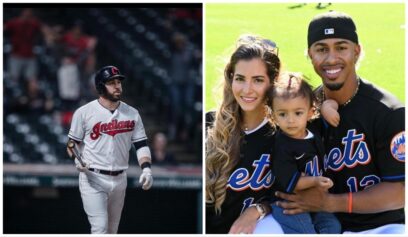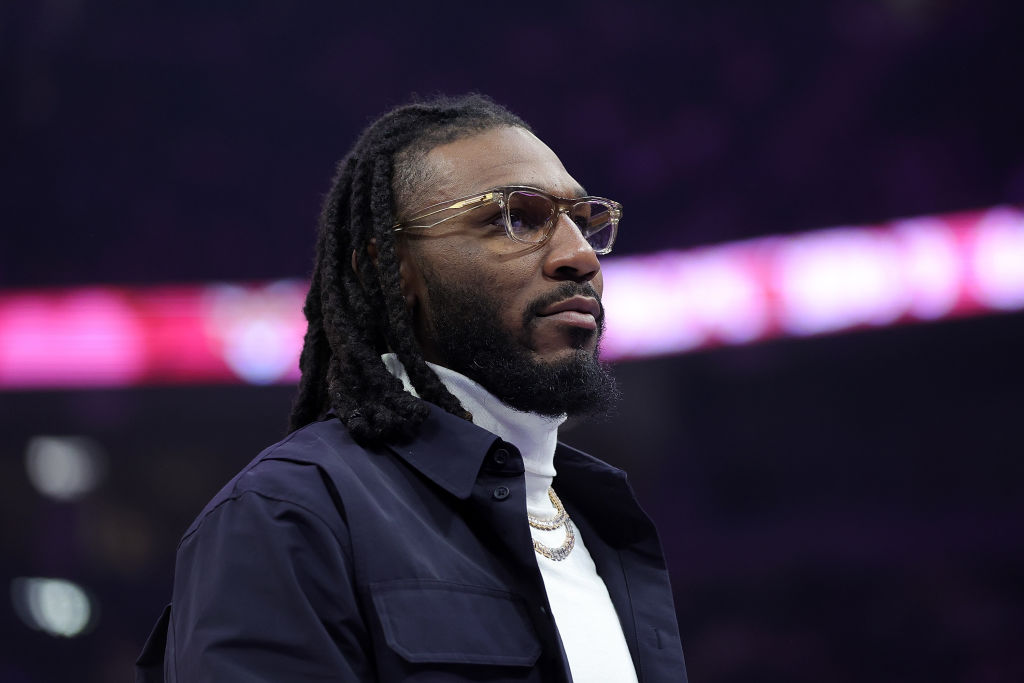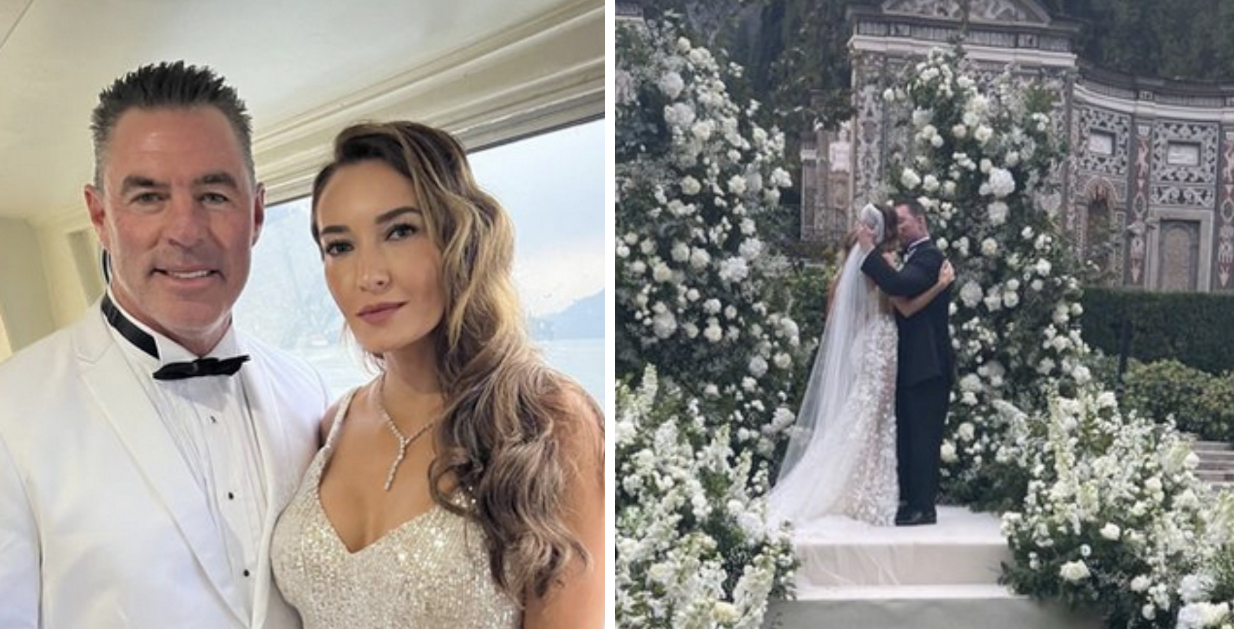On this date in 2000, Itchiro Suzuki left the friendly confines of Japan and signed a three-year, $14 million deal with the Seattle Mariners. Itchiro was a beast in Japan, but America's lack of respect for Japanese baseball tempered the expectations for Itchiro as he transitioned to the Big Show.
Itchiro shocked the baseball world with a dope 2001 season and became “The Beast from The Far East,” masterfully slapping a rookie-record 242 hits—the most by any MLB player since 1930. He was a stud flashing leather too. His dynamic fielding led to Safeco's right field to be dubbed "Area 51" (After Itchiro’s jersey number).
Fourteen years later, it’s safe to say Itchiro has surpassed any GM’s wildest dreams about what kind of player he'd become. The end result of Seattle's overseas investment was a 200-hit machine and the only player in history other than Pete Rose to amass 4,000 hits in his pro baseball career (Japan and MLB). Itchiro rode the wait-and-see attitude of the media to a comfortable situation.
When folks tend to sleep on a player and he exceeds expectations, it's usually a blessing to all parties involved. On the flip side, unfair expectations can kill a player’s career. A pre-determined perception of a player's game can cloud reality and rob us of the ability to recognize the true intricate beauty of that player.
Jason Heyward has been a victim of those high expectations since joining Atlanta a half decade ago as a lauded 20-year-old. His arrival was draped in fanfare, hype and anticipation. He was the local phenom (via Ridgewood, New Jersey) with the fairy tale story. He was drafted by his hometown squad and homered in his first big league at-bat. He was voted to the All-Star Game as a rookie and he was anointed as “the future of the game” by Hank Aaron.
Heyward’s proved to be a solid baseball player, but he never quite lived up to the ATL hype.
After his promising rookie year, Heyward was plagued by injuries and struggled to flex the sort of muscle numbers that the Braves expected. He's had only one season with at least 20 homers and 80 RBIs.
Another sub-par season in 2014 (.271 with 11 homers, 58 RBIs and 20 stolen bases) in which the Braves also slumped to their first losing season since 2008 led to the firing of general manager Frank Wren and the hiring of John Hart who made it clear he is looking to shed bloated contracts and build depth throughout the organization, with a focus on starting pitching.
With Heyward approaching free agency in 2016, the Braves dealt their right fielder and reliever Jordan Walden to the St. Louis Cardinals on Monday for 24-year-old, rising pitcher Shelby Miller and a minor-leaguer.
"It's very difficult to trade Jason Heyward," said Hart on MLB Network. "But the deal was made to help us not only in the short term but the long term."
It’s always hard to trade one of your city’s sons. Heyward started his professional career for the Braves at age 17, first with the GCL Braves and then with the Danville Braves of the Appalachian League. It’s also a blow to ATL’s black baseball fans and an admission that the ambitious plan the franchise formulated in 2013—to field a throwback, five-tool-player infested outfield—had failed miserably.
“I’m a baseball fan first,” said Heyward, who was a Braves fan growing up and attended Georgia's Henry County High School. He was selcted 14th overall by ATL in the 2007 MLB Draft and signed a sweet deal for $1.7 million. “And to have the opportunity to play for my hometown team for five years was icing on the cake. “And now to go play for an organization like the Cardinals is a pleasure."
“Getting traded to a winning organization… It’s is a blessing in disguise. What a good place to get myself settled around guys that have experience in the postseason… and it should help me as a player and person moving on. Everyone is so well aware of their roles that it’s hard not to fit in."
The Braves thought they were providing Heyward with that kind of support when they signed The Upton Brothers for the 2013 season, forming The Soul Patrol. The baseball world was anticipating a return to those great “all-black” Braves outfields of the 90s. Instead, B.J. Upton has continued to decline as a player to the point where he’s stealing money. Brother Justin has been productive but he’s still owed $46 million dollars and the Braves won’t hesitate to move him.
By trading Heyward and Walden, the team shed what could have been as much as $10 million from next season's payroll while acquiring Miller, a battle-tested young gun, who is not yet eligible for arbitration and can't become a free agent until after the 2018 season.
The deal initiates a long-term strategy for restructuring the roster by the time the Braves move into their glitzy suburban ballpark in 2017.
"We want to build something that's going to sustain," Hart said on TV.
That plan for sustenance ultimately didn’t include J-Hey, once the cornerstone of one of baseball’s flagship organizations. However, when it’s all said and done, Heyward’s baby years with the Braves will probably be a blip on his career radar. Leaving his hometown as an unfulfilled phenom rather than a highly-coveted free agent is not the exit Heyward wanted, but the future is bright for a guy who is just approaching his prime.
As a member of a deep and talented Cardinals lineup that de-emphasizes the home run and highlights a player's all-around capabilities, the two-time Gold Glover will be appreciated for his speed and elite defense. J-Hey is a human highlight film in right field and his glove will save the Cardinals as many games as his bat wins. Heyward’s DRS (Defensive Runs Saved) of 98 is highest among MLB outfielders since 2010.
“I can tell this is going to be a lot of fun. I’m anxious to get started,” Heyward added. "I didn’t exactly know which team I’d be going too but I got the drift I’d be traded sometime during the offseason."
If not for the tragic death of platinum prospect outfielder Oscar Tavares, Heyward would probably still be a lame duck Brave today.
The NL Central champion Cardinals felt compelled to pursue Heyward after Tavares was tragically killed in a car crash last month in the Dominican Republic, just weeks after introducing himself to the world with his pinch-hit, game-tying home run in Game 2 of the NLCS.
Heyward’s not the power bat St. Louis craved, but he still has dinger potential and a change of scenery could be the best thing for him. He can stroke anywhere in the lineup and play any outfield position. He’s a baller and this is the type of trade that could go down as a steal for the Cardinals—unless of course, Miller becomes Greg Maddux.
Either way, it's simply part of Heyward's maturation process. J-Hey’s never existed day-to-day beyond the confines of his Southern Comfort. The Midwest air might rejuvenate his power surges. St. Louis hopes to eventually sign Heyward to a long-term extension, but didn't want to go into next season without beefing up the offense. It all makes sense.
Sometimes, when all you know is the block, you get caught in a box. It’s time for Heyward to shed the burdens of being ATL’s baseball savior and emerge from the shadows of Hank Aaron and David Justice and Brian Jordan, Lonnie Smith and past great Braves outfielders. He’s starting a new chapter in St. Louis with no expectations other than to play his best. Now, he can truly shine as just another potent part in a well-oiled MLB machine.



